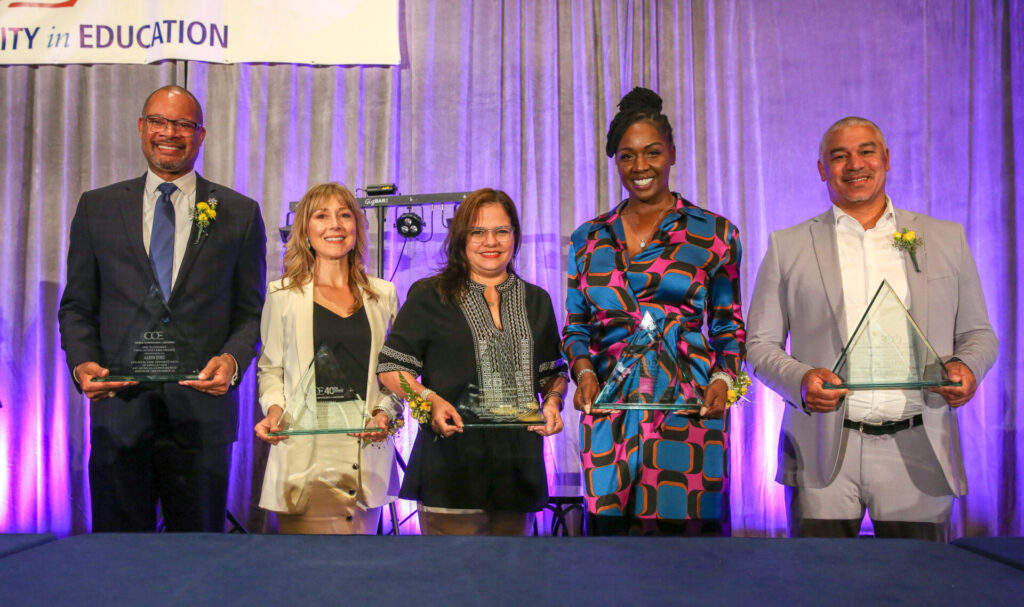
Five TRIO alumni accepted awards at the Council for Opportunity in Education’s national conference Thursday night, and all told what they accomplished with the help of TRIO programs. The five are leaders in politics, Internet communications, non-profit advocacy, scholarly research, and one best-selling author.
The TRIO Achiever Award honors the accomplishments after college of individuals who obtained a degree with the help of one of the eight federal TRIO programs for low-income, first-generation students.
“Upward Bound saved my life!” said Nevada Attorney General Aaron Ford. He arrived at the hotel after introducing Vice President Kamala Harris at another event, but his vivid childhood memories seemed far removed from his current success. Ford spoke of eating a candy bar for dinner and how Upward Bound gave him a way to escape his neighborhood.
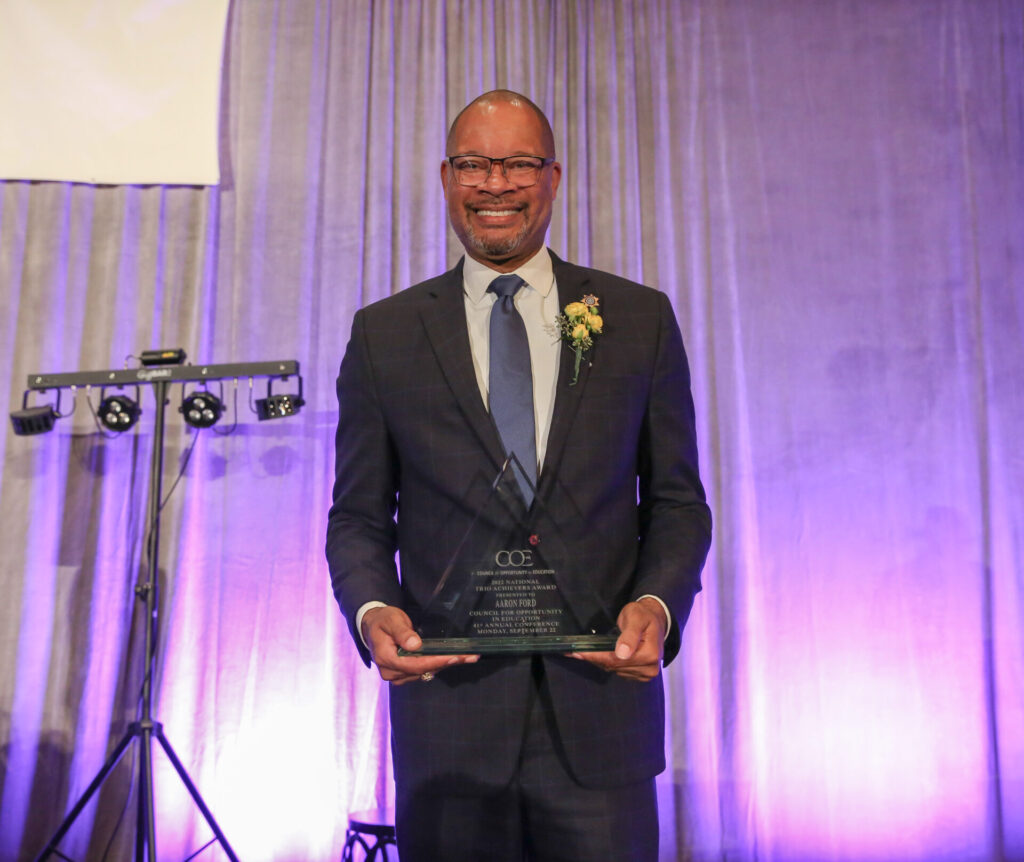
“Instead of me hanging out with a friend who stole a school bus while he was high on crack, I was at SMU [Southern Methodist University]. Instead of hanging out with the neighborhood dope dealers and getting shot, I took a practice SAT with Upward Bound.” Ford now has five degrees, including a law degree and a doctorate.
Kiesha King, the senior national education administrator at T-Mobile and a graduate of Arizona State University, was recognized for her pioneering, years-long efforts to connect low-income students to the Internet at no cost to their families. She holds a master’s degree and a doctorate but recalled when it was hard to obtain even simple items.
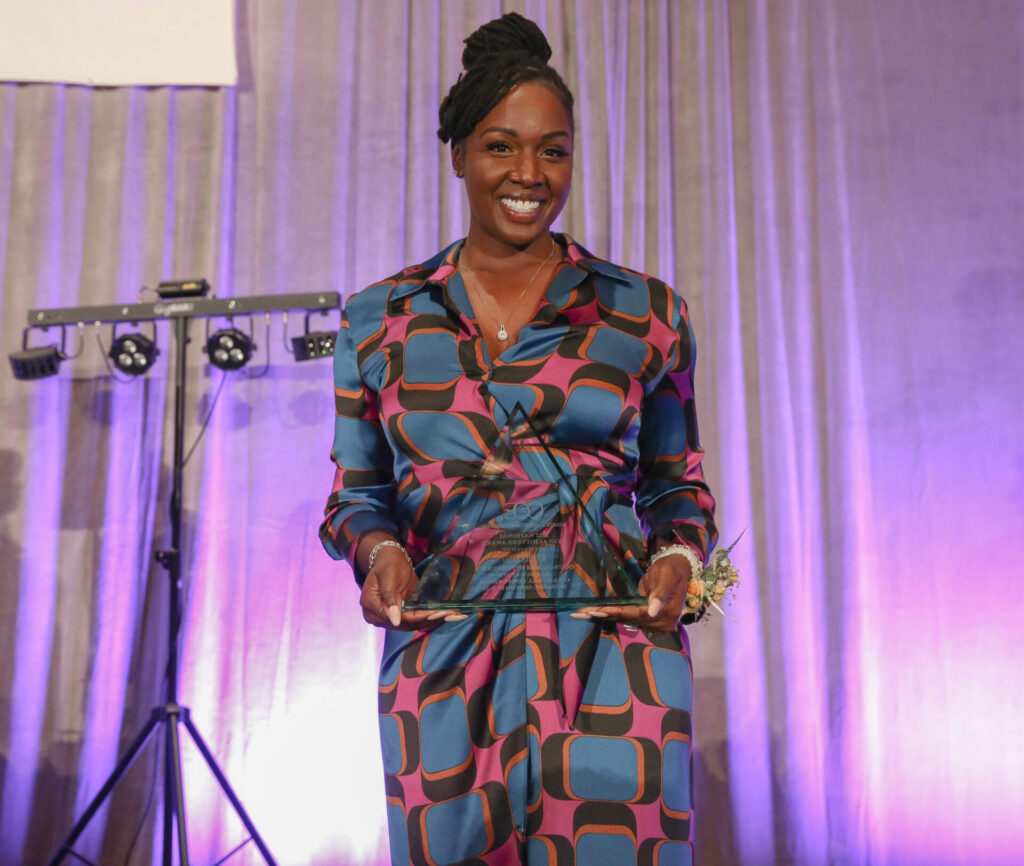
In third grade, King loved attending choir at school, but her teacher told her that her family needed to pay $5 for a T-shirt that all members needed to wear to perform in public. Her family didn’t have the $5. “I needed an advocate at that moment. It was easy for me to become discouraged,” she said.
Later, she found an advocate in the Upward Bound program. “Upward Bound helped me understand what I wanted,” she said. “I want to tell every little girl who looks like me that TRIO works,” she said.
Marinilda Rivera Diaz is the professor and coordinator of the doctoral program in public health at the University of Puerto Rico and is known for her work on health disparities among the poor.
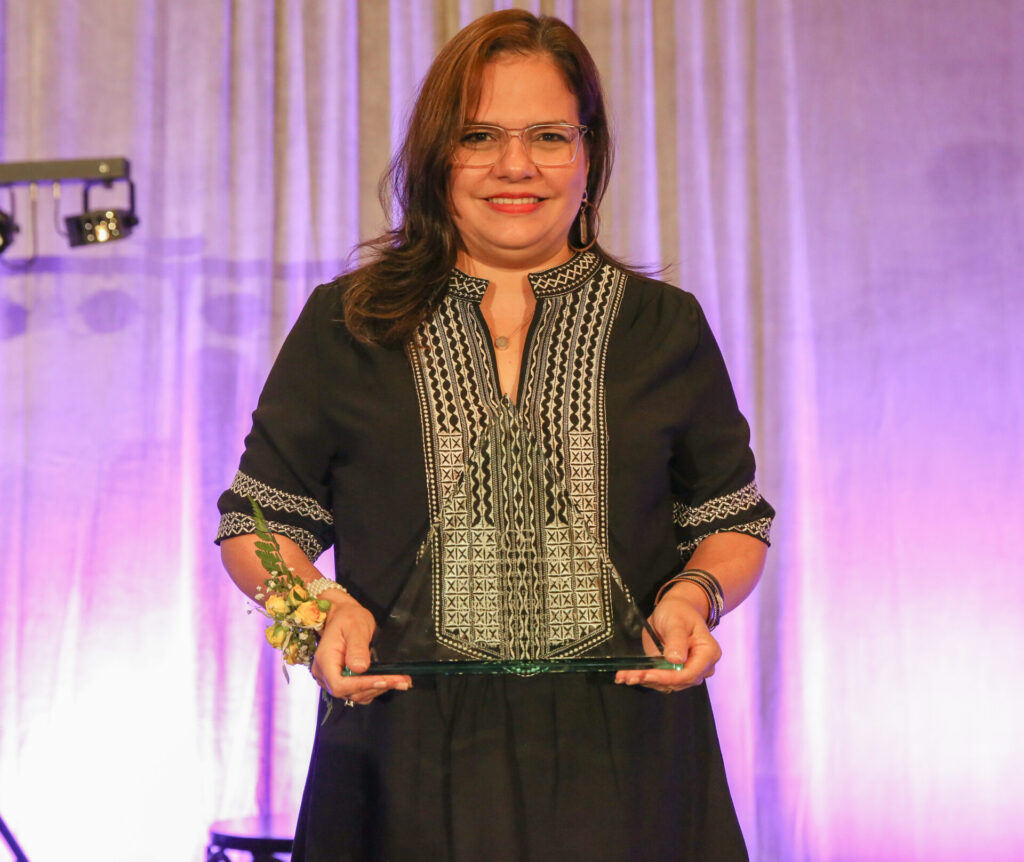
Rivera Diaz became a TRIO student at the University of Puerto Rico’s Educational Opportunity Center, but long before, as a child, she and her mother passed the campus with its distinctive clock tower. Her mother said, “That is where the smart ones go to school.” “In 1993, I walked into that tower of the smart ones,” Diaz said, and by her third year, she became a McNair Scholar. “When you give an opportunity to one, you help an entire community,” she said.
James Monteiro, a graduate of Roger Williams College, spent 20 years in and out of prisons, earning an associate’s degree in psychology while incarcerated with the help of the Educational Opportunity Center at Rhode Island College.
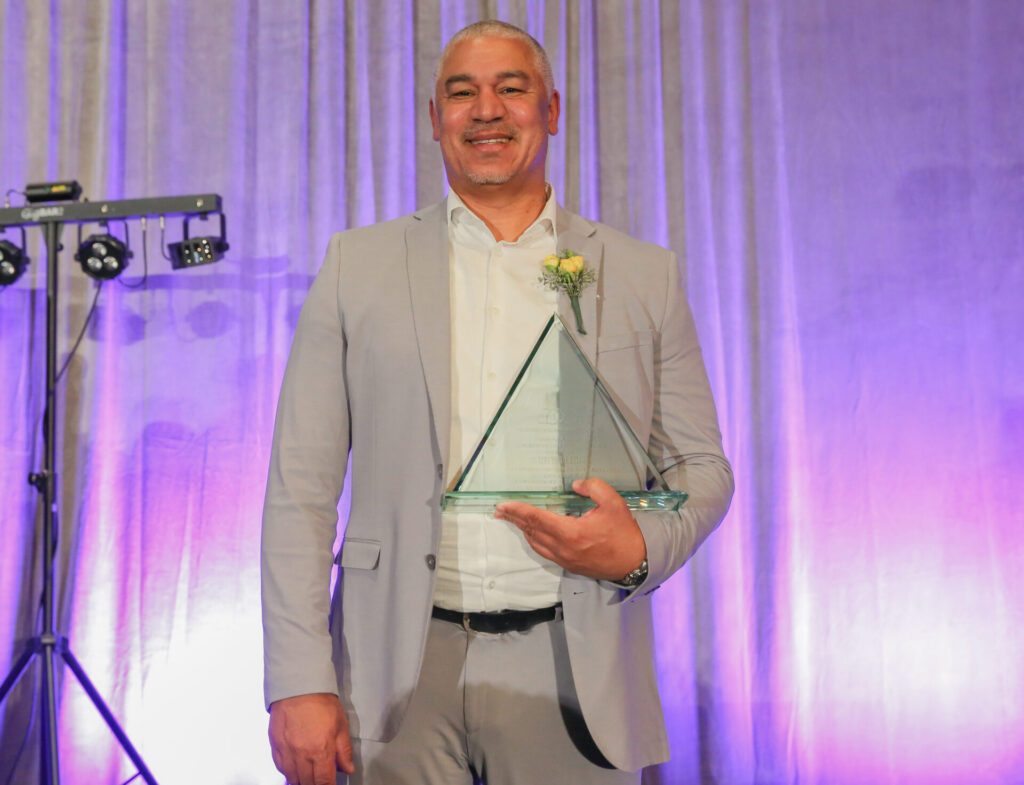
“The first time I was incarcerated, I got help from an educational opportunity director,” Monteiro said, and that offer of help stayed with him and motivated him to take courses in prison. But after he served his first prison sentence, he said, “I was released with an 8th-grade education without a leg to stand on.”
Eventually, he became determined to succeed, and, once he earned his degree, he started two non-profit organizations, one which helps prisoners and the other which helps teenagers. “After getting a degree, I haven’t had to look back. Once you have freedom, you want to give it to someone else,” he concluded.
Sarah Smarsh is a best-selling author and acclaimed journalist whose 2018 book, Heartland: A Memoir of Working Hard and Going Broke in the Richest Country on Earth, was a finalist for the National Book Award. When she attended the University of Kansas as a first-generation, low-income student, she credits the McNair Scholars program with helping her finally feel like she belonged.
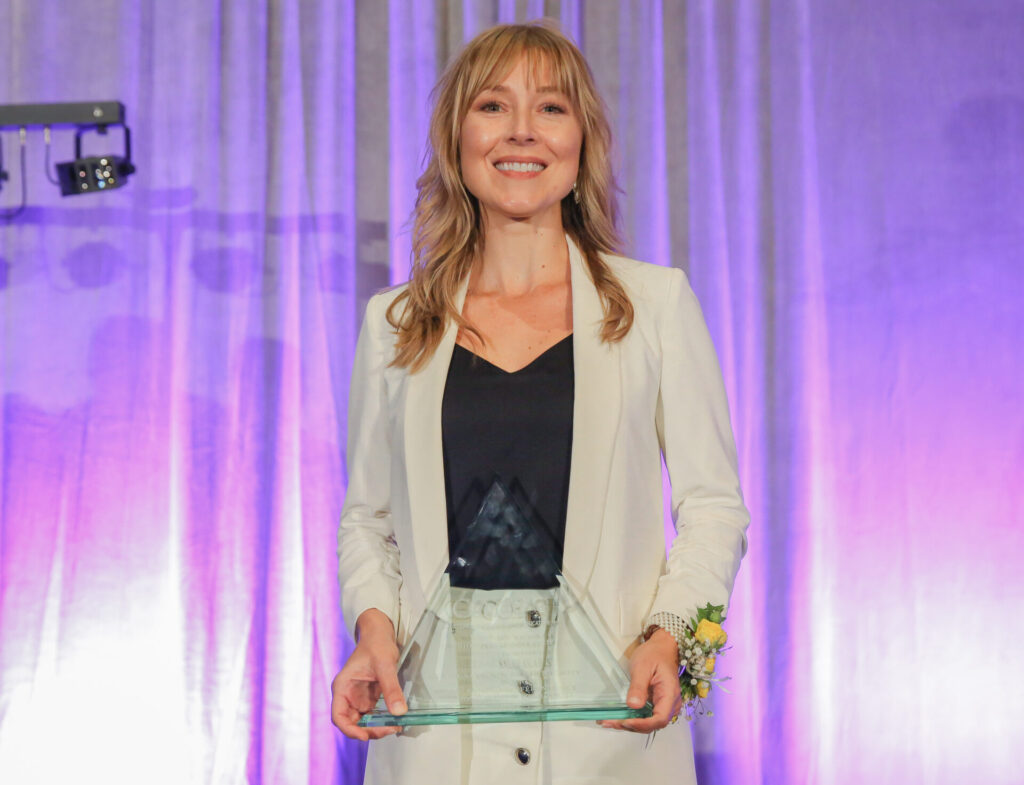
Years attending college, she said, at the University of Kansas, “were the hardest years of my life not just because of poverty, but the invisibility of my struggle .” But she and her fellow McNair Scholars, she said, “shared an unspoken solidarity.” After graduation, she attended Columbia University as a McNair Scholar.
“Class isn’t just about how many dollars are in a bank account. It is about vocabulary, cultural understanding, and inherited ease in a given space. I would never have applied to graduate school if McNair hadn’t encouraged me because it was a bigger dream than I ever had for myself,” she said.